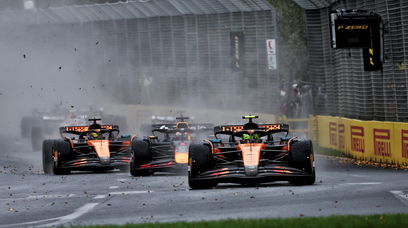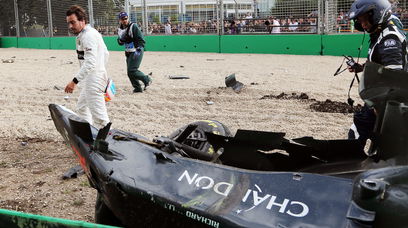Ferrari driver Charles Leclerc says he is fully supportive of the team's decision not to favour one driver over another at the start of the year. New Team Principal Fred Vasseur has insisted that Leclerc and teammate Carlos Sainz will be given equal equipment and treatment in 2023 – a notion that Leclerc said he was fully behind. "I completely agree with this philosophy, you cannot start a year [favouring one driver over another]," Leclerc told media, including RacingNews365.com , at the unveiling of the Ferrari SF-23. "I think it's important for Carlos and I to be fully motivated to do the best job possible in the first part of the season, to push each other to perform the best. "Then, if at one point in the championship a driver is fully in the fight for winning that championship, I'm sure the team will do everything possible for the driver that is fighting for the championship to be in the best possible conditions. "For this, we'll talk later obviously, but at the beginning of the season I think it's the right thing to do."
Ferrari's previous team order controversies
Vasseur's decision not to favour one driver over another stands in stark contrast to Ferrari's approach in years past. During the 2000s, Rubens Barrichello was ordered several times to let teammate Michael Schumacher by, with the Brazilian notably slowing at the end of the last lap to allow the German to win the 2002 Austrian Grand Prix. This move proved hugely unpopular with fans and commentators alike, and prompted the FIA to ban team orders from the start of the 2003. However, even this did not stop Ferrari from issuing similar instructions in future races. At the 2010 German Grand Prix, Felipe Massa was leading from teammate Fernando Alonso, when his engineer Rob Smedley radioed to say that Alonso was quicker than him. Massa soon waved Alonso past to take the lead and win the race, with Smedley's message widely considered a coded instruction to allow the Spaniard by. This incident prompted the FIA to reverse the 2003 ban on team orders, on the grounds that it was too difficult to effectively enforce such a rule.
Most read











